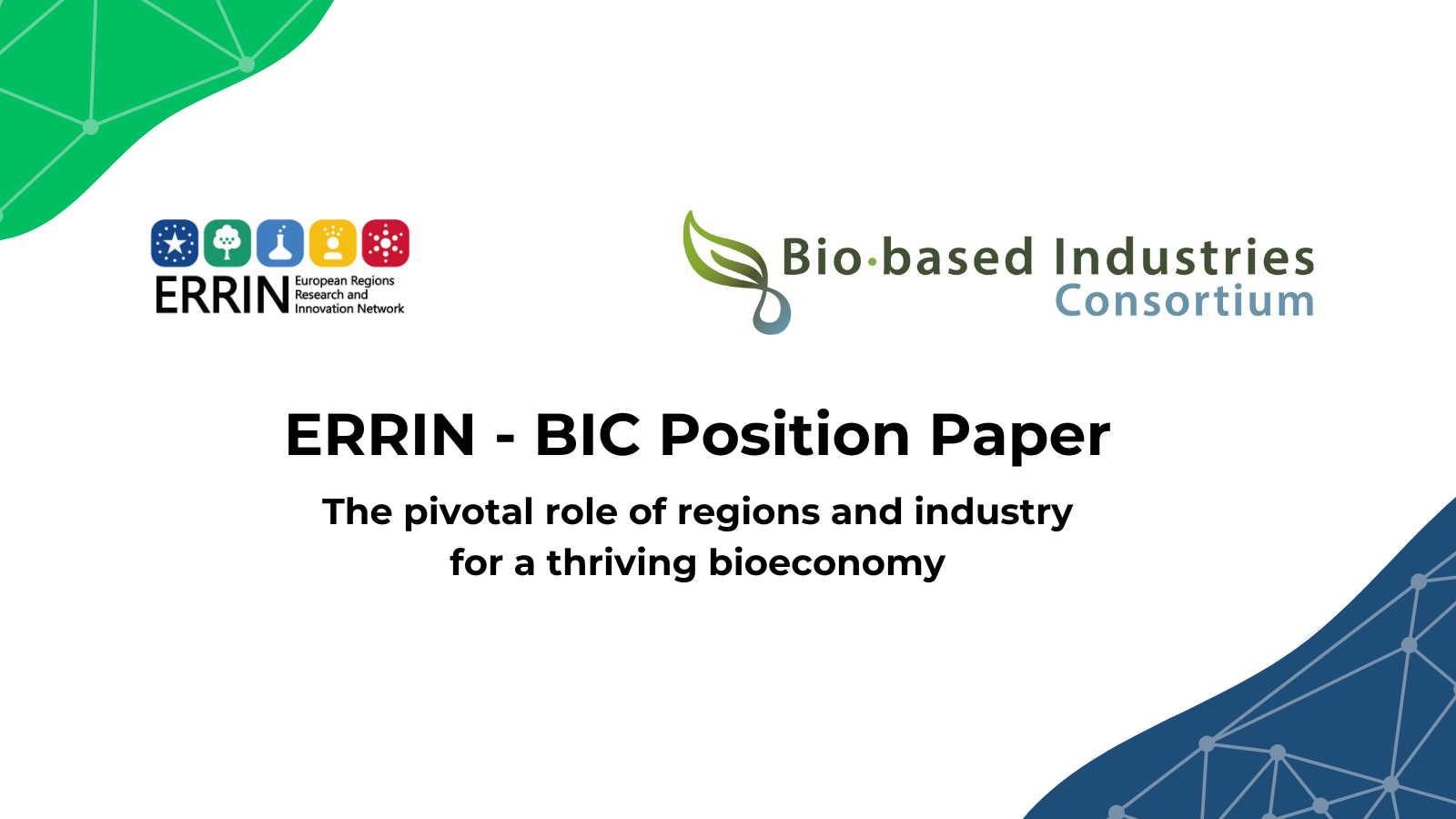
The pivotal role of regions and industry for a thriving bioeconomy: ERRIN - BIC joint position paper
ERRIN, through its Bioeconomy WG, and the Bio-based Industries Consortium (BIC) have jointly released a position paper outlining a proposal for the most pressing actions for the European bioeconomy to be tackled during the upcoming European Commission mandate period.
A circular bioeconomy can reconcile growth, resilience, and sustainability, reducing the EU's dependency on fossil resources while enhancing strategic autonomy by manufacturing bio-based products in our regions. The bioeconomy can create jobs and investment opportunities for thriving communities, however faster action is needed to make a significant impact in the coming years:
- Recognise the bioeconomy's strategic role in EU policies by updating the EU’s Bioeconomy Strategy by 2025, involving regional and industrial stakeholders, setting indicators and targets, and ensuring interdisciplinary policy design with central coordination at the EU Commissioner level.
- Support and scale up bio-based innovations by developing national and regional bioeconomy strategies, setting up an IPCEI for bio-based industries, creating common European rules for bio-based public procurement, and strengthening bioeconomy-related skills.
- Engage local and regional authorities with industrial ecosystems by creating bioeconomy-related Regional Innovation Valley ecosystems, strengthening place-based strategic policymaking and exploiting funding synergies.
- Foster public-private collaboration for research and innovation by continuing the Circular Bio-based Europe Joint Undertaking, with strengthened engagement of regions and their stakeholders and by setting up regional innovation programmes for experimentation and planning industrial circular use of bio-based materials.
- Secure sustainable biomass supply for biomanufacturing by conducting strategic analysis on EU biomass demand and supply, encouraging Member States to support biomass supply chain resilience and facilitating data sharing on feedstocks and secondary biomass for better industrial symbiosis and urban planning.
- Gianpiero Petruzziello
- 18/07/2024
-
Working Group
-
Document